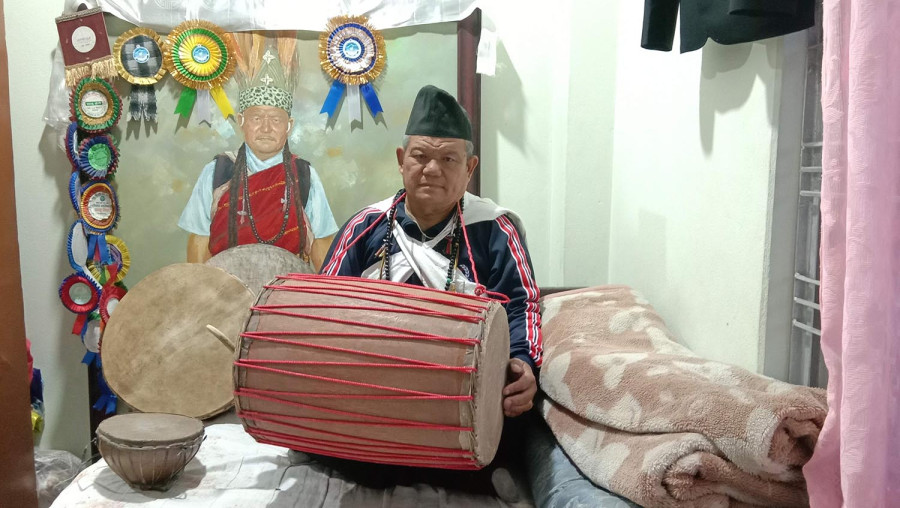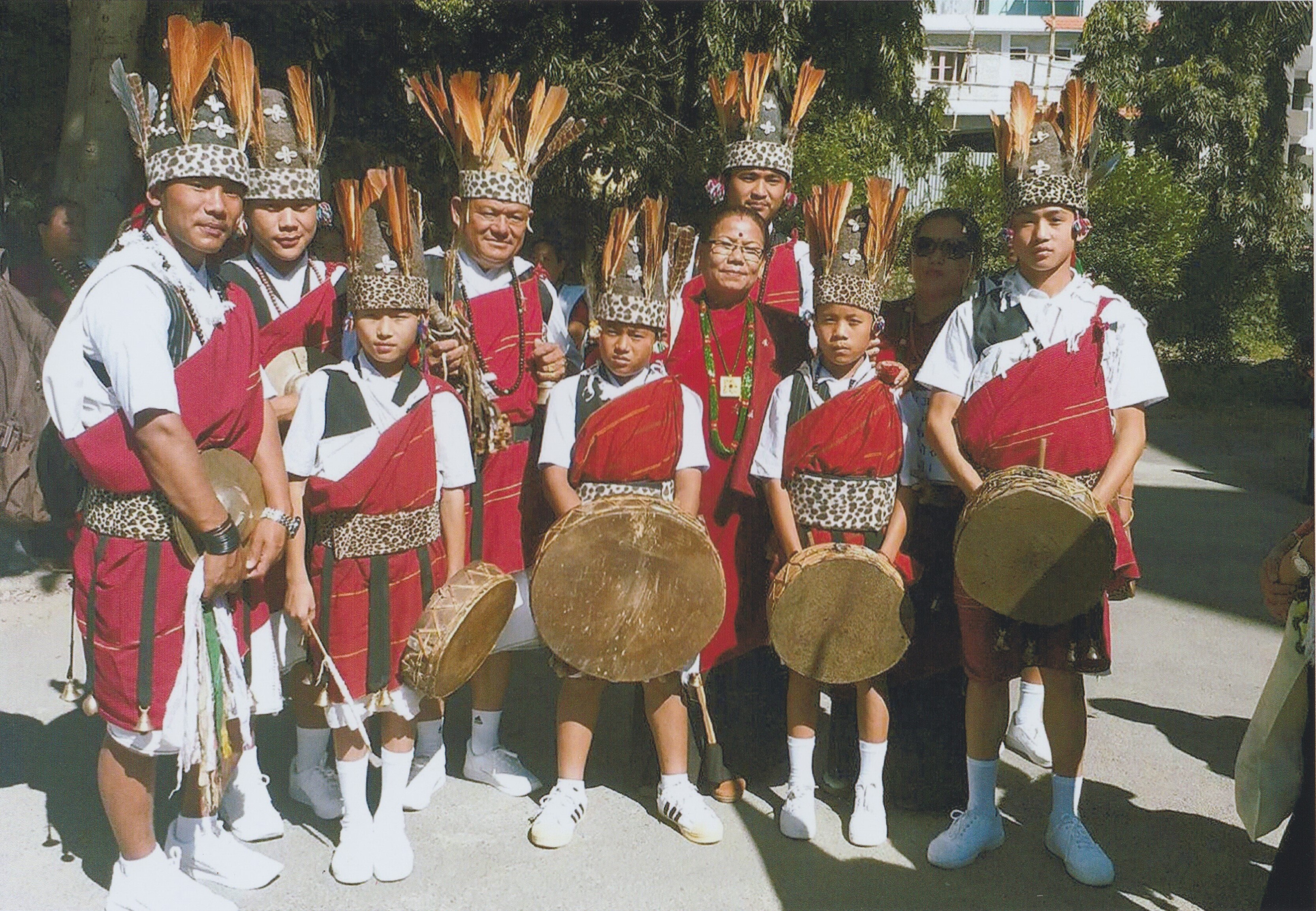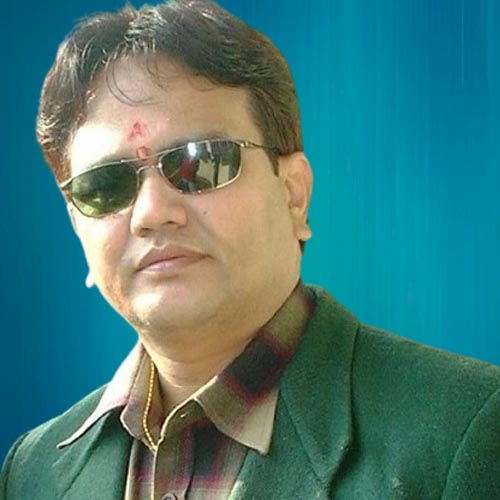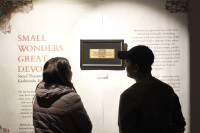Culture & Lifestyle
Protector of Pachyu culture
Pachyu Thauba Chyangli Gurung, a senior priest in Pokhara, teaches unique cultural practices to interested children in his community.
LB Thapa
Pachyu Thauba Chyangli Gurung is the senior priest of the Pachyu Gurung community in Pokhara. He teaches the sacred knowledge of Pachyu rituals to the young generation of his community by selecting interested children and teaching them traditional ritualistic knowledge of their ancestors.
The Gurung communities fall into four categories: Pachyu, Ghypri, Bonpo Lam, and Buddhist Lama. “Becoming an independent priest is not everyone’s cup of tea. Many boys leave the course in the middle and go home. Even if the student is fully dedicated to learning the knowledge, it will still take at least six years or even more,” he said.
At present, Gurung has accommodated 17 young boys at his home. He manages food and lodging facilities for them. “I am very much worried about the future of my clan as most of the young generation don’t show much interest in becoming a Pachyu. If someone does not learn, who will perform all the ritualistic practices in the future? This knowledge will fade into oblivion,” he said.
Gurung is not only a learned priest but also an accomplished artisan. He makes top-quality musical instruments, which are used in the Gurung rituals. “I was nine years old when I started learning how to make musical instruments in my village in Syangja. My father was the one who taught me the skill,” he says.
Gurung says that making these musical instruments is a laborious job. He explained that it requires an extreme degree of commitment and time. To make these musical instruments, Gurung relies on natural materials.
“You can’t use any kind of wood to make these musical instruments. Poor quality wood will not give a proper shape. In order to get proper wood, I go much deeper into the forest in Syanja and bring jhankri wood, koiralo wood, and phaleto wood,” said Gurung.

Gurung has made over 3,000 musical instruments used in rituals and festivals. He makes dhyangro, dhol, tyanku, and several other musical instruments. These musical instruments are not only by the Pachyu and other Gurung communities.
“To make dhol and dhyangro you need a special type of leather. I make no compromise with the quality, and I know from experience which leather is the best to make such musical instruments. An old she-goat’s skin is the only kind of leather used to make the instruments,” said Gurung.
“Many people of the Gurung community and others regularly visit me and demand specific kinds of musical instruments. However, I only take orders to make musical instruments that are solely for rituals. My musical instruments are popular for their quality and durability,” he said.
Gurung revealed that for making a dhol, he charges about Rs6,000 to Rs7,000, and for dhyangro, he takes Rs5,000. “The leather I use to make tyanku, on the other hand, is different. I managed to get a monitor lizard’s skin to make a tyanku. The base of the tyanku is a copper bowl. I charge about Rs5,000 to Rs6,000 for it.”
In order to protect and promote ritualistic knowledge of the Pachyu community as well as its musical instruments, Gurung has registered an organisation called Pachyu Teachings at the chief district office in Kaski. “It is quite evident that the modern generation doesn’t show much interest in carrying on the traditional practices of our ancestors. Many Gurung children are unable to speak their language,” lamented Gurung.




 11.54°C Kathmandu
11.54°C Kathmandu















